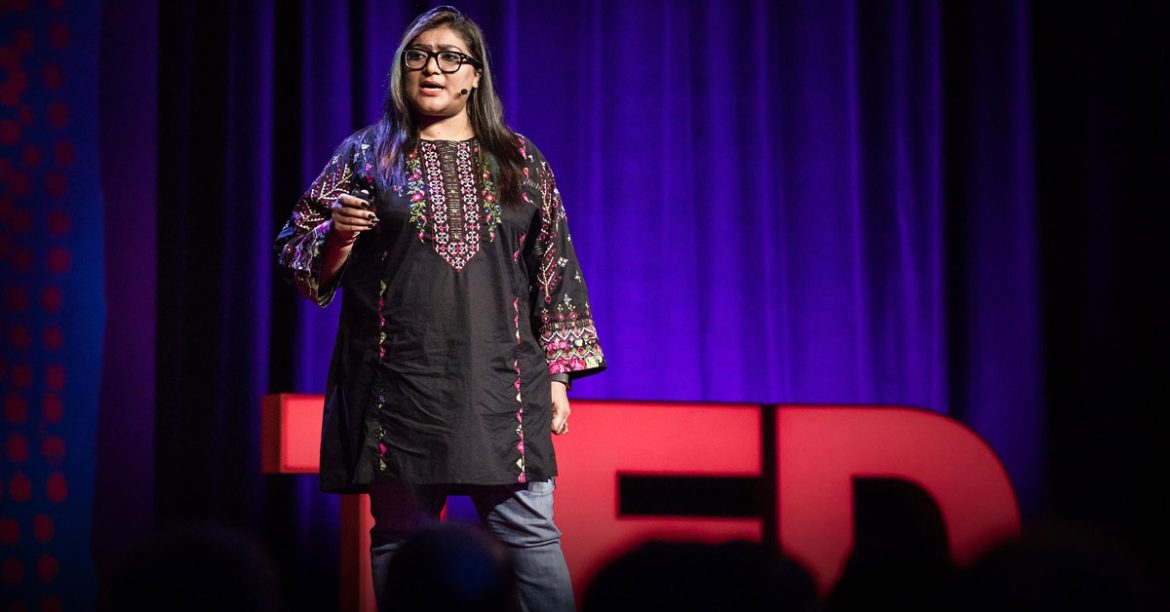- Personal Journey and Advocacy: Nighat Dad, raised in a conservative family in Pakistan, overcame early challenges of domestic abuse and societal restrictions, using her legal education to fight for her rights and custody of her child, which inspired her advocacy for women’s empowerment.
- Digital Rights Foundation: In 2012, she founded the Digital Rights Foundation (DRF) to bridge the digital divide and combat online abuse. DRF has helped over 16,000 victims through its cyber-harassment helpline and provides free legal support, achieving significant victories for women’s rights in Pakistan.
- Global Tech Leadership: Dad now influences global tech policies as a member of the UN’s AI Advisory Board and Meta’s Oversight Board, advocating for inclusive technology governance and emphasizing the importance of amplifying voices from the Global South.
Nighat Dad grew up in a conservative family in Jhang, a city in Pakistan’s Punjab province. The prospect of early marriage loomed over her childhood.
Her parents were committed to ensuring their children received an education despite their traditional values. To support this, they relocated the family to Karachi, allowing Dad to complete her bachelor’s degree.
Reflecting on her upbringing, she recalls, “I never imagined I would work or be independent. We were always taught to seek permission for everything.”
Hoping to delay marriage, Dad pursued a master’s degree in law. However, soon after completing her studies, she learned that her parents had arranged her marriage. Initially, she accepted her new life of domestic responsibilities in a lower-middle-class household, but this changed when the abuse began.
“My legal education reminded me that this was unacceptable,” she says. “Our laws and constitution protect me—why was I enduring this? Why was I allowing it?”
With her family’s support, Dad left her husband and filed for divorce. However, years of abuse had left her grappling with low confidence and no professional experience. “I had no idea how challenging life would be for a divorced woman with a child in our society,” she shares.
Also Read:
Pakistan Launches Harassment Complaint App for Women
When her ex-husband initiated a custody battle for their two-month-old baby, Dad faced financial difficulties. Her father’s encouragement was a turning point: “He reminded me that I was a lawyer too.”
Using her legal knowledge, Dad fought for and won custody of her child. This experience opened her eyes to the systemic violence and injustice many women in Pakistan endure. What stood out to her the most, however, was the stark digital divide.
Growing up, Dad was denied access to a personal cell phone, and even when she eventually acquired one, her husband used it to monitor her calls and messages. Despite having a potential escape tool, societal and marital restrictions rendered it inaccessible.
“Living through that made me realize the rapid evolution of technology and its potential to create virtual safe spaces for marginalized communities,” she explains. “It also reinforced the importance of challenging norms that restrict women’s access to technology.”
In 2012, Dad founded the Digital Rights Foundation (DRF), a non-profit organization dedicated to bridging the digital divide and combating online abuse targeting women and gender minorities in Pakistan. Initially, the organization focused on providing digital safety advice and emotional support to women.
By 2016, the DRF launched a cyber-harassment helpline, coinciding with Pakistan’s enactment of cybercrime legislation. To date, the helpline has managed over 16,000 cases nationwide. “There were times when the police would share our contact information with victims seeking reliable help,” she notes.
The DRF’s in-house legal team provides free legal advice, assisting women in filing and pursuing complaints against their abusers. This support has led to several successful outcomes, including the arrest and prosecution of offenders. One significant case in 2021 saw the DRF help journalist Asma Shirazi win a legal battle against a coordinated online trolling campaign and false reports aired by ARY News.
Also Read:
Here’s How Women are Countering Sexual Harassment with Safety Pins
“If an organization like the DRF had existed during my struggles, I would have felt so much less isolated,” Dad reflects. “Having access to legal guidance and emotional support could have spared me from the deep depression I experienced.”
Today, Dad plays a pivotal role in shaping global discussions on technology policy. She serves on the United Nations’ AI Advisory Board and was a founding member of Meta’s Oversight Board, which allows users to challenge the platform’s decisions.
“The emerging tech landscape is dominated by Western corporations and governments, sidelining civil society organizations from the Global South,” she explains. “This creates a persistent gap in global AI governance, leaving us perpetually behind. It’s crucial to remind those in power that inclusivity is essential for meaningful progress—they cannot succeed alone.”
Stay tuned to WOW360.
